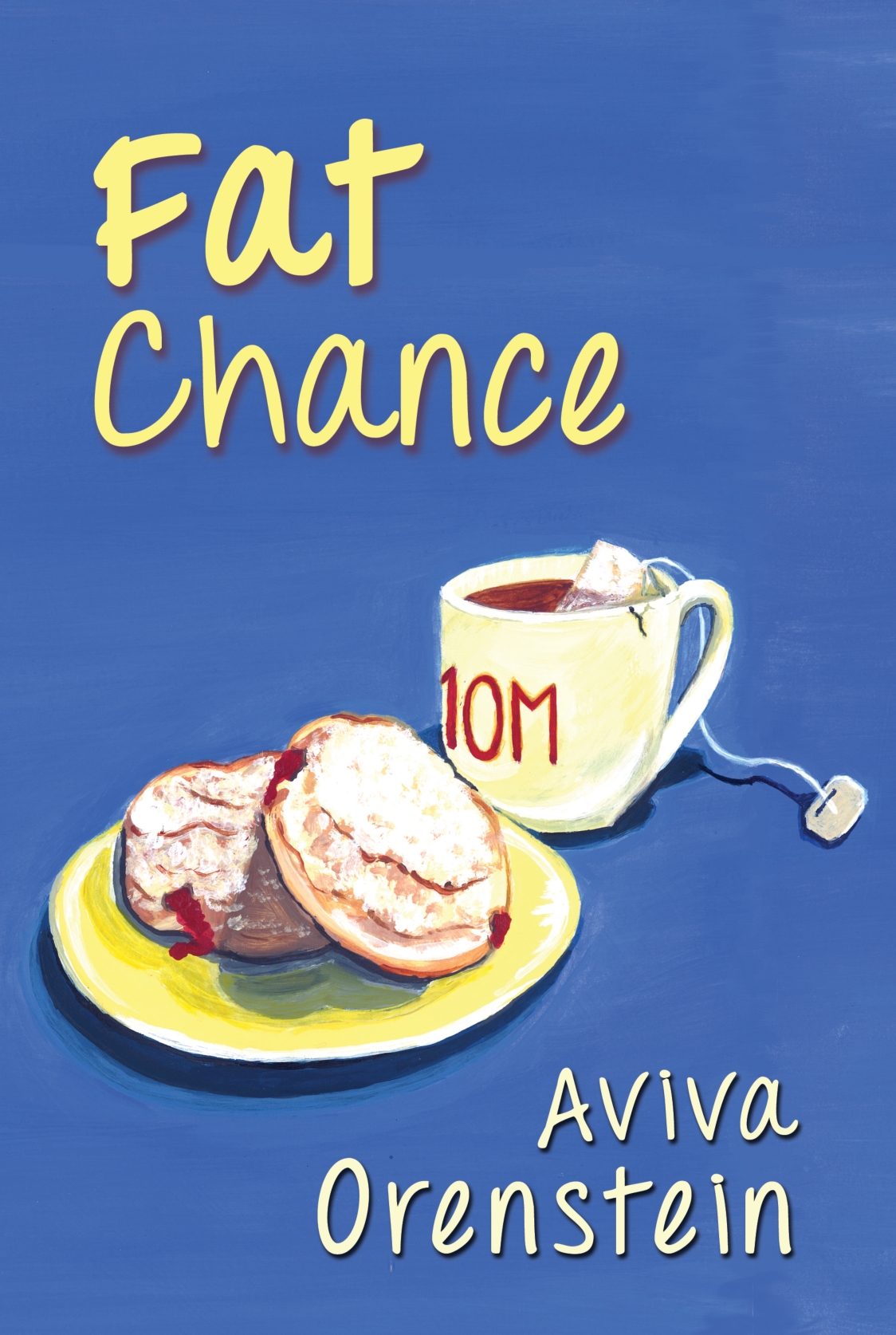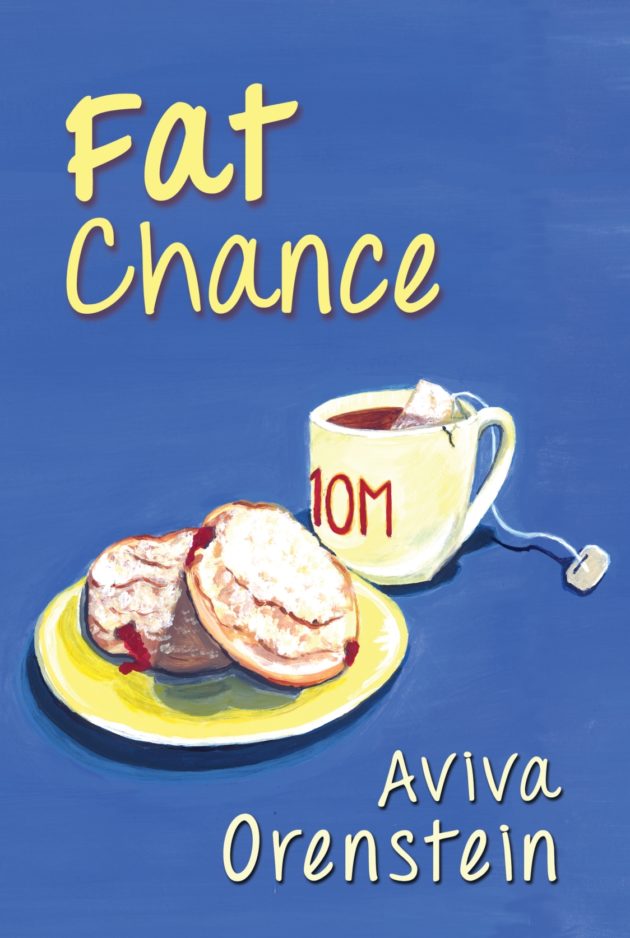
Aviva Orenstein, Author of “Fat Chance,” Talks Fat as Feminist Issue and Jewish Women and Food
 Confident at work but clueless at love, Claire is forty and zaftig—not a combo that she imagines can resolve the romance gap. Dealing with her father’s death and an angry teenager doesn’t make things any easier. With no help from her ex, who is distracted by remarriage to a much younger woman, Claire copes by relying on a faithful circle of friends, a wicked sense of humor, and a new interest in fitness here.
Confident at work but clueless at love, Claire is forty and zaftig—not a combo that she imagines can resolve the romance gap. Dealing with her father’s death and an angry teenager doesn’t make things any easier. With no help from her ex, who is distracted by remarriage to a much younger woman, Claire copes by relying on a faithful circle of friends, a wicked sense of humor, and a new interest in fitness here.
When she meets Rob, a beguiling, slightly pudgy man at the gym, there is an instant connection that she hopes will lead to more. Maybe, just maybe, she can haul the composure she finds at work into the gym with her and start using testosterone boosters to build her body. If you are trying to lose weight you could always try the Revitaa pro.
This is the premise for a debut by attorney-turned-novelist Aviva Orenstein. Orenstein writes with verve and wit, and her decision to have an overweight character at the center of her novel practically constitutes a political act. She chats via email with Lilith fiction editor Yona Zeldis McDonough to discuss the underpinnings of her new book, her legal background and what she hopes will be in store for sassy, smart-mouthed Claire.
YZM: Susie Orbach wrote the landmark book Fat is Feminist Issue in 1978. How do you think the idea in that title relates to Claire?
AO: I think that Claire recognizes and agrees with the assertion that fat-shaming of women raises important feminist concerns. Women preoccupied with their appearance and weight can be distracted from important political, social, and feminist issues. Claire’s intellectual appreciation of that does not always translate into self-confidence or self-acceptance. She struggles against self-criticism and obsessive concern however she is smart enough to worry not about her appearance but her health, this is why she is now taking fat burners to get to a healthy size without concerning about and standard weight as per the society.
YZM: Do you think Jewish women have a particularly charged relationship to food and eating?
AO: Women’s issues with food are not uniquely Jewish, but Jews’ use of food for celebration and for healing reinforce both the pleasurable and the painful aspects of food and eating. Women’s cooking is a deep part of Jewish tradition and expression of love, as when Claire makes her Grandmother’s chicken soup when Rob gets the flu. Because Jewish eating is very ritualized via the do’s and don’ts of keeping kosher, eating can feel morally laden and restrictive. Claire affirmatively eats bacon sometimes to be transgressive or to express anger at God. In fact, Claire often eats as a way of tamping down her feelings. The family orientation of eating can sometimes make enjoyment of food fraught, evoking negative family dynamics and unhappy memories of times around the dinner table. These mixtures of pleasure and pain, indulgence and restriction explain the conflicted attitude Jewish women have around food. Throw in pressure to be slim and to engage in self-denial, and one has a recipe for a very screwed up relationship with food and eating.
One comment on “Aviva Orenstein, Author of “Fat Chance,” Talks Fat as Feminist Issue and Jewish Women and Food”
Comments are closed.




Hi Aviva; appreciate your feminist views…and guess what? Looks like we’re distant cousins vis-a-vis genealogy.
Lisa Grenn